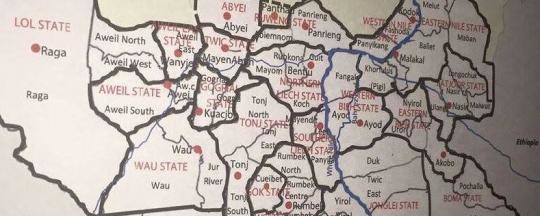The Anyuak Community of Jonglei State has called for President Salva Kiir to reconsider the division of their tribe which would be split between Eastern Bieh and Boma states according to the recent order to create 28 states.
In interviews conducted by Radio Tamazuj, Anyuak members of the Jonglei State parliament said they don’t want to be divided into two states since it will weaken them.
“We have come up with our concern as the Anyuak Community, we don’t want to be divided and we have given our position to the governor to present to the President,” MP Barnaba Okony told Tamazuj on Friday.
MP Stephen Ogut said they are already a minority in the state assembly but if they are divided into two states they will not have any voice. He said the ethnic Nuer in Akobo will marginalize them in Eastern Bieh State.
He said the Anyuak Kingdom keeps the community united and the culture alive, but this will be weakened by dividing Jonglei state.
Akobo, the capital of the proposed Eastern Bieh State, was historically inhabited by the Anyuak community but during the 1952 British system of governance, the community was divided with some taken to today’s Pochalla and others remaining in Akobo.
Parts of Akobo were also inhabited by the Lou Nuer, which brought disputes between the two tribes after South Sudan’s independence in 2011.
Akobo Community Chairman Omot Ojullo Okoth said in a press release that splitting the state is an imminent threat to the Anyuak people’s survival, saying they would rather the state include Pochalla and Akobo together.
“There are two options: first option, we want our own state under our kingdom [in Akobo and Pochalla]. Second option is to join Boma State with our brothers [in Pochalla County],” the press release said.
In order to be peaceful, the Anyuak leaders said they will leave Akobo to Lou Nuer and join their fellows in Pochalla to form Boma state with the Murle.
However, MP John Joseph of Pochalla South disagreed with the opposition to the division, saying the Anyuak will remain one tribe though in two states.
“The Anyuak was divided by the British, part of them were taken to Ethiopia, and the other part to South Sudan, and even today as we speak, there is no difference, we are still one Anyuak,” he said. “We can still call for our brothers there in Akobo and we can do things together.”




